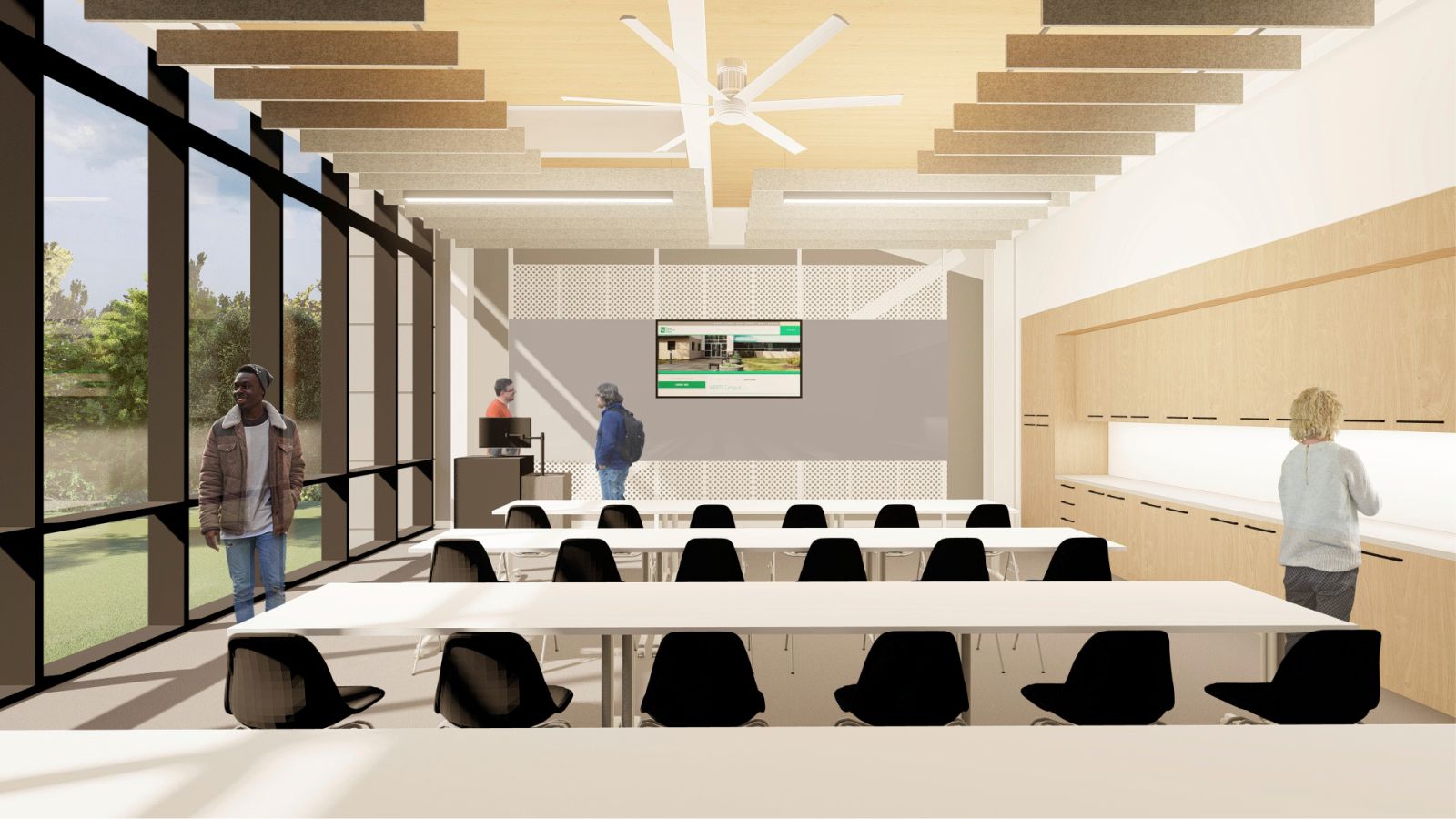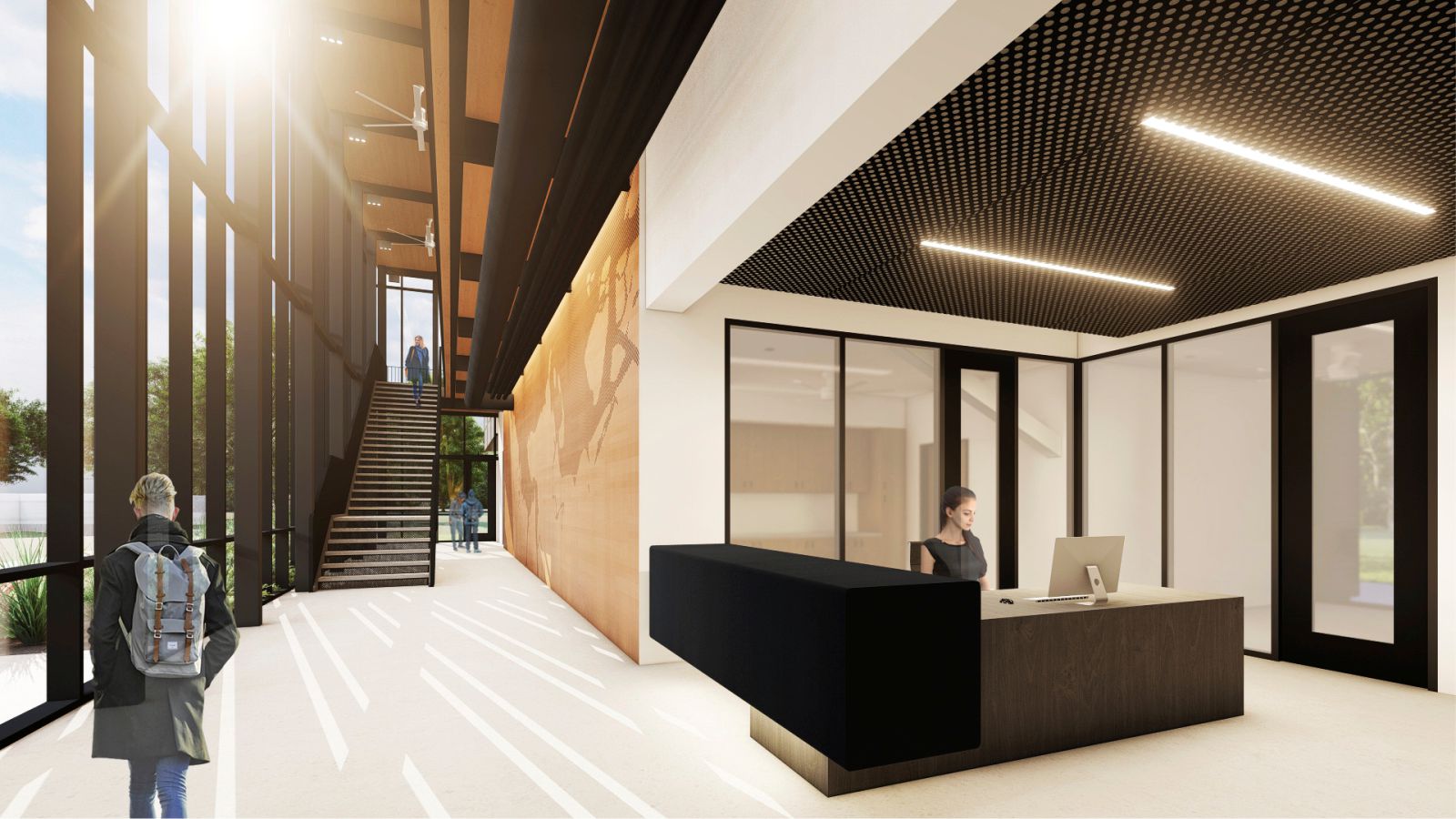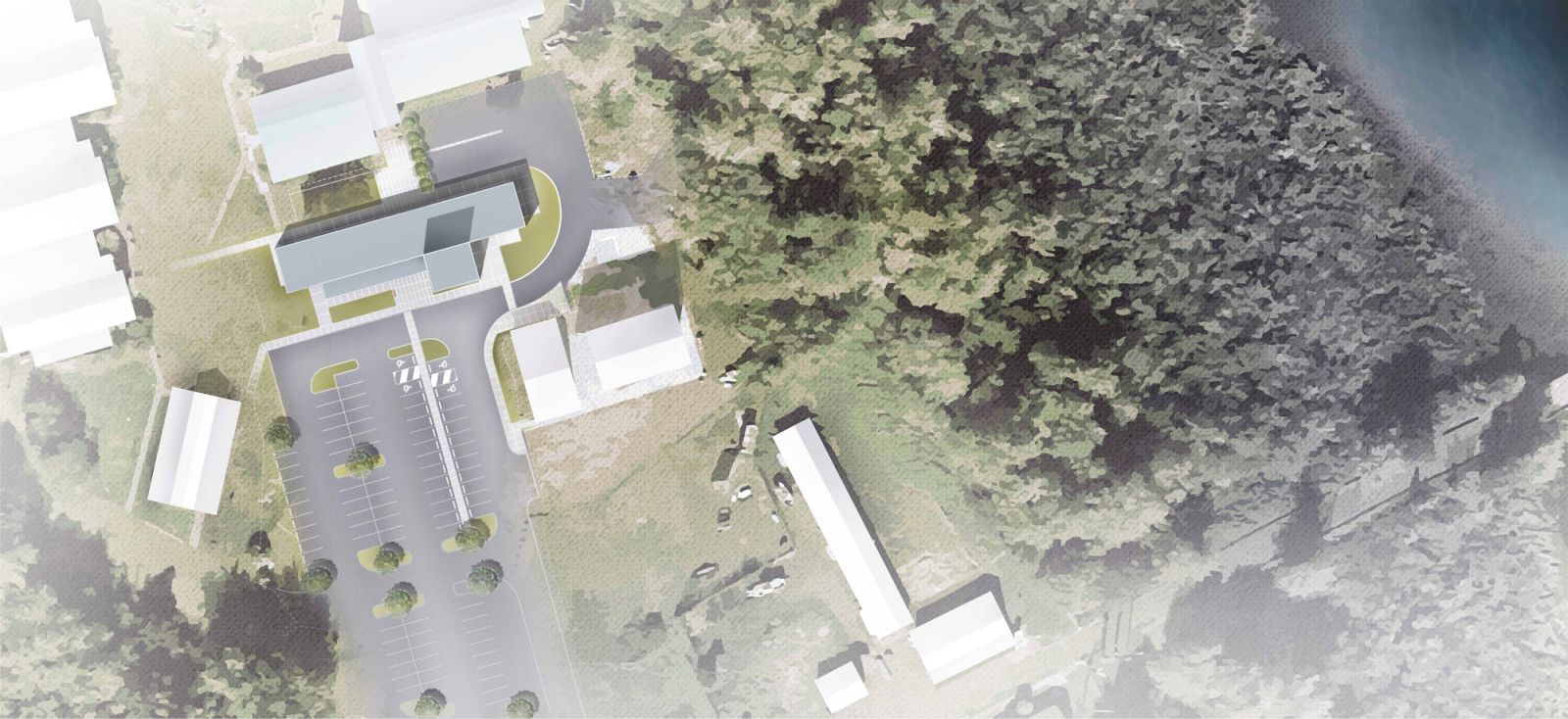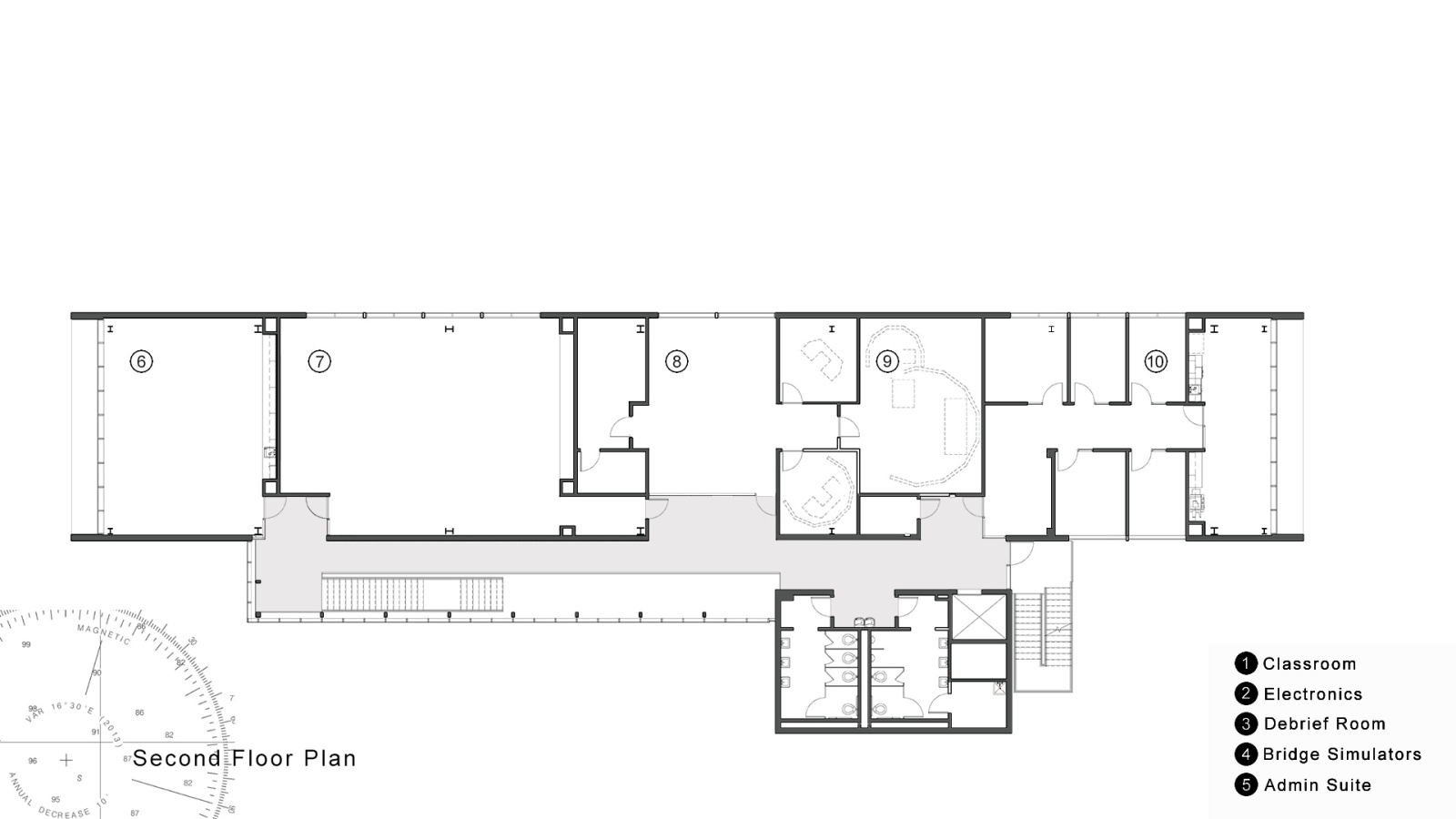The Maritime Science Building will elevate the recognition of Clatsop Community College’s coastal educational program as it continues to grow into the most comprehensive industrial and marine technology center in the Pacific Northwest. This new facility reflects the college’s commitment to the future of the region and its mission to inspire and engage the entire community.
The 15,500-square-foot facility will house general and specialized classrooms including a machine room, offices, conference space and other instructional and building support spaces for their Maritime Science, coastal resources, environmental studies, scientific research training and Industrial and Manufacturing Technologies career and technical academic and training programs.

Cantilevers on both sides of the building create spacious, covered outdoor workspaces below. The enhanced access to quality training establishes a place of educational, cultural and economic participation to provide jobs and growth for the next generation of leaders. As only the fourth building on the Marine and Environmental Research and Training Station (MERTS) campus, the siting of the building was of high importance.
The design will integrate the building into the existing campus and its natural surroundings, while also creating a unique destination and arrival point for the campus that strengthens the sense of place and the maritime identity and brand. As the portal to campus and the first structure people encounter, the transparent atrium will invite views in for people arriving and views out for students and staff completing training courses.
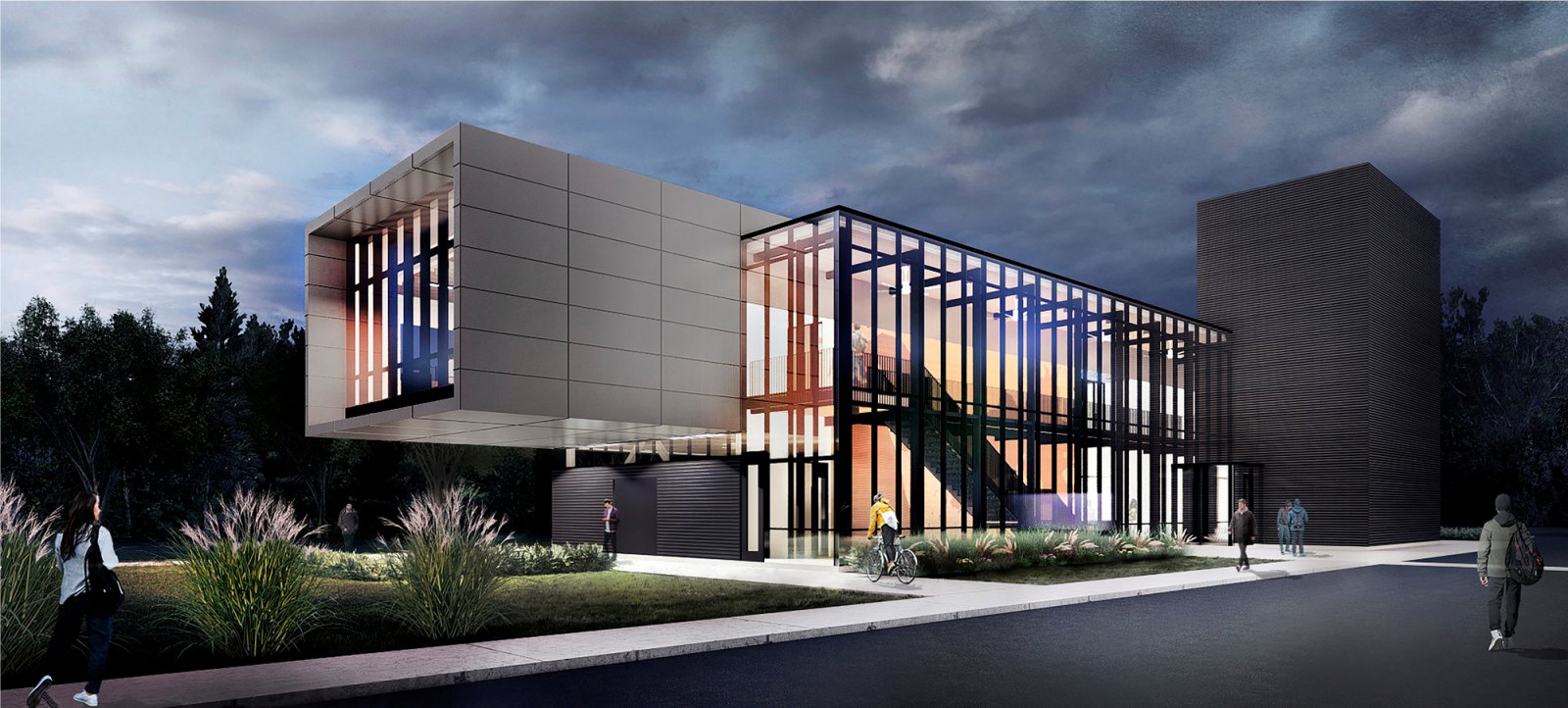

A large, graphic map of where the Columbia River meets the Pacific Ocean, will be made of perforated wood to celebrate the identity, scope and purpose of the rigorous program. Located adjacent to the Columbia River, the MERTS Campus sits on land that was dredged from the riverbed.
The soil is sandy and silty, creating a high risk of soil liquefaction in a seismic event, a key design challenge for the project. By limiting the footprint of the ground floor, foundation drilling (and cost) is minimized, as bedrock is 60-feet down. To accommodate the rest of the program a large second floor will cantilever over the site, tying back to the structure and taking advantage of the deep piers’ strength.
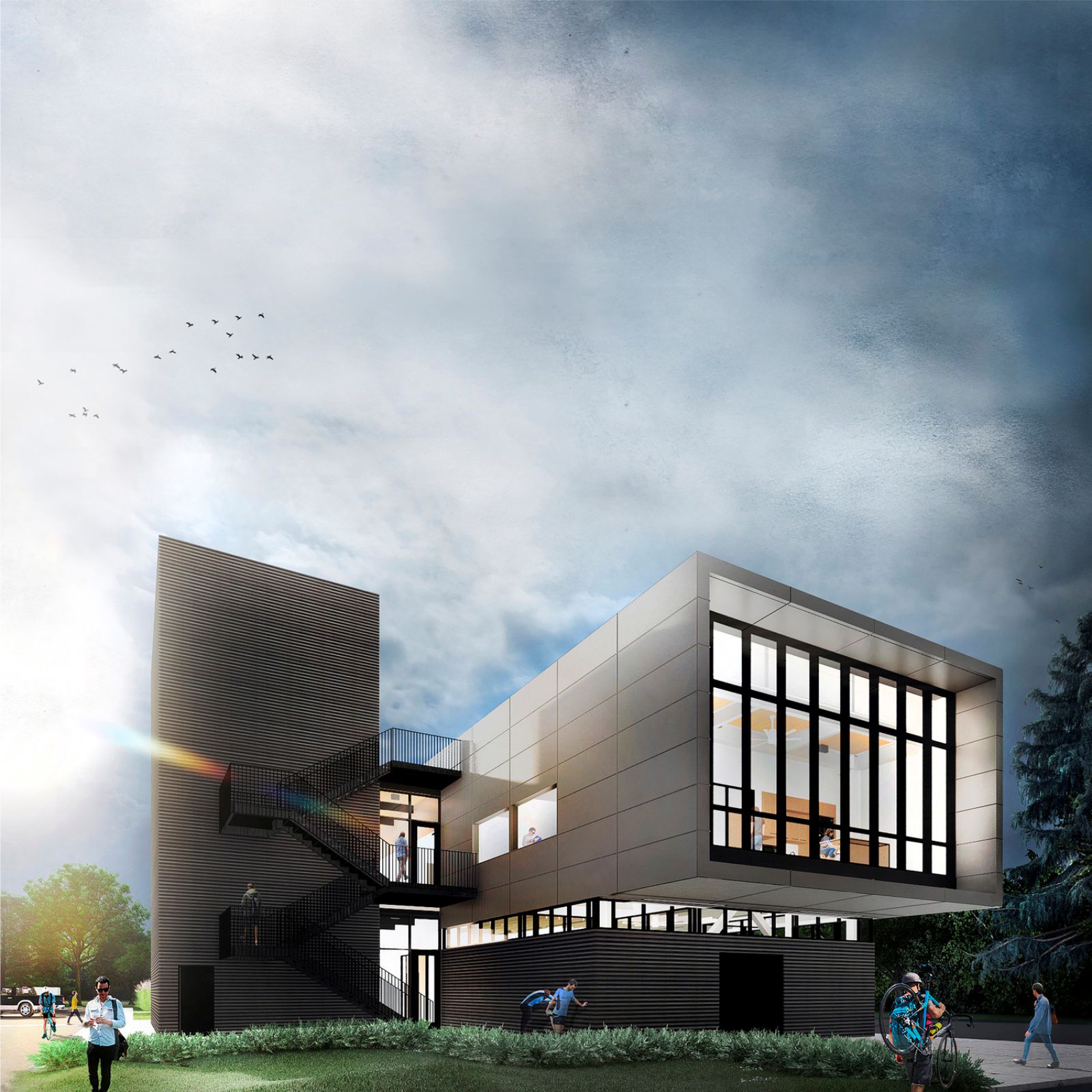
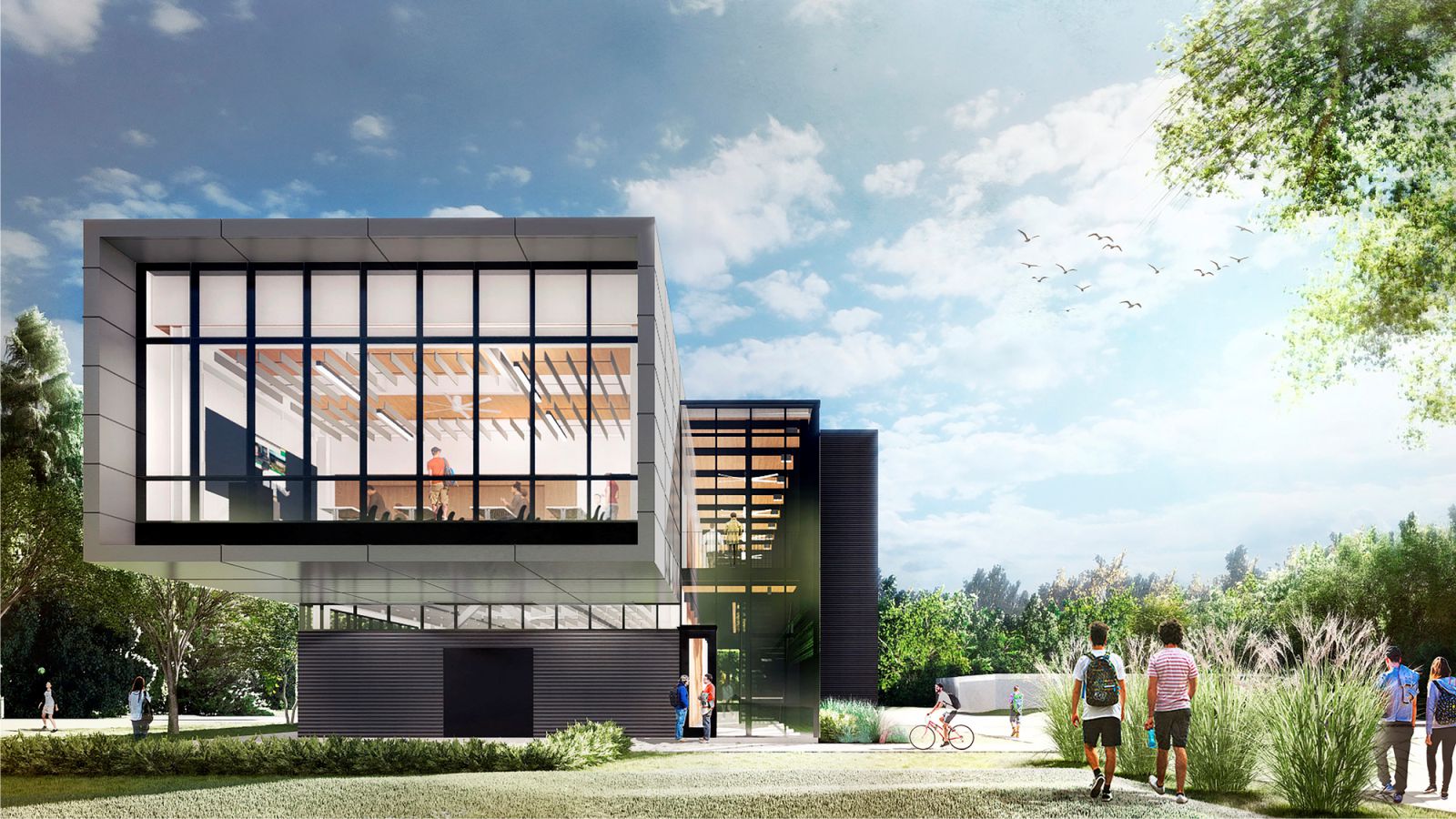
The building’s design evokes the feel of a working ship with steel, mechanical systems, and stairways exposed, highlighting the hands-on ethos of the training program. The structure and interiors will feature exposed mass timber to convey the atmosphere of a ship, as well as honor the region’s timber industry.
Additionally, the span of mass timber will eliminate internal columns, leaving the space open and adaptable as programming needs evolve. Moving through the building will feel like navigating the bridge on a maritime vessel. Source by SRG Partnership.

- Location: Astoria, Oregon, USA
- Architect: SRG Partnership
- Design Team: Bjorn Clouten, Carl Hampson, Gary Danielson, Matt Sedor, Eric Reynaert, Dan Davis, Laurel Danielson, Samantha Kelsey, Jim Wilson
- Civil Engineer: Westlake Consultants
- Structural Engineer: Catena Consulting Engineers
- Mechanical, Electrical, Plumbing Engineer: PAE Consulting Engineers
- Cost Estimator: Rider Levett Bucknall
- Geotechnical Engineer: GRI
- Landscape: Lango Hansen
- Signage: Knot
- Environmental Graphics: SRG Partnership
- Lighting: O- LLC
- Client: Clatsop Community College MERTS Campus
- Images: Courtesy of SRG Partnership
